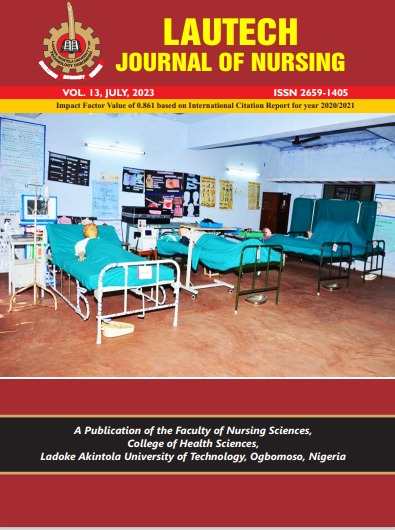Diabetes mellitus and its management pose significant public health problems for healthcare workers. Diabetic patients in the community frequently experience avoidable, debilitating, disabling, and unpleasant illnesses, owing mostly to poor lifestyle practices and a lack of understanding. Hence, this study aims to assess the effect of lifestyle modification education on the quality of life of diabetic patients in the Samaru Community. The research design employed for this study was a quasi-experimental approach using a pre-test and post-test methodology. The study population consisted of
ninety (90) patients with type 2 diabetes mellitus residing in the Samaru Community. Data collection utilized the World Health Organization Quality of Life (WHOQOLBREF) instrument, which was adapted from the World Health Organization. Descriptive and inferential statistical analyses were conducted to examine the collected data and test the hypothesis. Demographic findings revealed that 85% of the respondents were female, and 87% had received some form of education. The study results indicated that both the study and control groups had a fair perception of quality of life before the intervention. Furthermore, the study observed that the level of perception of quality of life before the intervention was fair (43.6%), while after the intervention, the percentage of respondents with a
positive perception increased to 60.6%. Additionally, the findings indicated no significant effect in the aggregate mean score for the five domains of lifestyle modification education on the study and control groups’ perception of their quality of life before the intervention (P=0.89). However, a significant effect was observed in the aggregate mean score for the five domains after the intervention (P=0.07). Lastly, the results revealed that exposure to lifestyle modification education had a significant impact on the study group’s perception of their quality of life (P < 0.001). Based on these findings, the researcher concludes that lifestyle modification education positively influences the quality of life of diabetic patients. It is recommended that nurses, through their respective healthcare units, be encouraged to utilize lifestyle modification education as a non-pharmacological management approach to improve the quality of life for diabetic patients.
- UMAR | A. | B. | addanice@yahoo.co.uk | +234, HAYAAT | I. | G. | @ | +234, UMAR | A. | A. | @ | +234, TIJANI | A. | W. | @ | +234
- Lifestyle Modification Education; Quality of Life; Diabetic Patients
- UMAR A B HAYAAT I G UMAR A A & TIJANI A W


